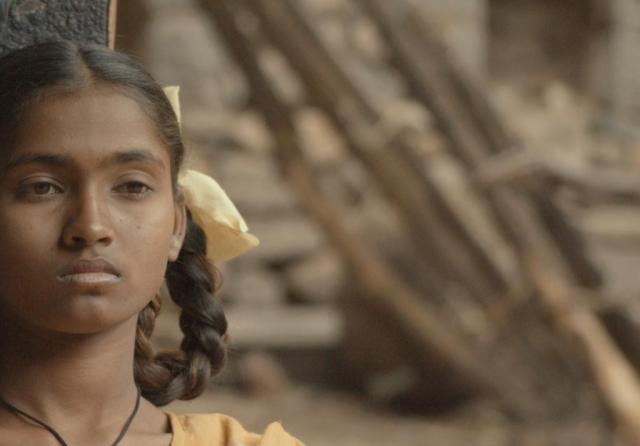Click here to join Express Pune WhatsApp channel and get a curated list of our stories
Director Shankar Dhotre’s film Potra highlights impact of menstrual cycle on the life of a girl
Dhotre observed that the customs followed to mark the menarche has the girl worshipped the first day but isolated from everyone thereafter.
 Dhotre’s directorial debut film ‘Potra’, based on the menstrual cycle, is part of the Marathi competition section of the 20th edition of the Pune International Film Festival.
Dhotre’s directorial debut film ‘Potra’, based on the menstrual cycle, is part of the Marathi competition section of the 20th edition of the Pune International Film Festival.MENARCHE OR a girl’s first period is an event of celebration in Shirapur village in Solapur district from where 29-year-old filmmaker Shankar Arjun Dhotre belongs. Dhotre observed that the customs followed to mark the menarche has the girl worshipped the first day but isolated from everyone thereafter. “The girl is treated like a goddess but soon she is asked to not touch anything or sit with anyone. I never understood why, and the question remained with me since then,” he said.
🗞️ Subscribe Now: Get Express Premium to access the best Election reporting and analysis 🗞️
Dhotre’s directorial debut film ‘Potra’, based on the menstrual cycle, is part of the Marathi competition section of the 20th edition of the Pune International Film Festival (PIFF). The 78-minute art film entered the film festival circuit and has so far been screened at 40 film festivals, including the Ambernath Film Festival, Rome International movie awards, Paris International Film Awards, Fox International Film Festival, Russia and New York International Film Awards.
The film was adjudged the best film in the Halicarnassus Film Festival held in Turkey and Best Debut Director’s award at the 25th World Film Carnival-Singapore.
The protagonist, Geeta, is a teenager, who excels in academics and extracurricular activities. After she gets her first period, her grandmother nags her father to find a groom for her at the earliest. ‘Potra’ in Marathi means ‘raw sorghum (jowari) and the story ends on a poignant note that highlights the blatant struggle between education and regressive patriarchal norms that strongly impact the life of a girl child.
“I have been working on the story of the film for the past eight-nine years. When I was a child, I had observed some customs that were followed when a girl reached puberty and had her first period. So, the first day is commemorated but for five days she is called impure. If she is impure, then I believe God is impure, as it is God who has made her… The question remained with me and made me write the story,” said the director.
In his early days, Dhotre was very much into sketching and painting. “Shashikant Dhotre, an Indian Contemporary painter is my older brother. Art gave me a good sense of framing and observing people. I always wanted to make a film, as I love the art of storytelling. You see, every art form is a form of storytelling and I like the medium of film,” said Dhotre.
Potra replicated Dhotre’s first-hand experience and his familiarity with the various customs around menstruation. No stone was left unturned to replicate the reality of adolescent girls in rural India. “The film was shot at five different locations in the Pandharpur district. We had checked around 200 villages as we did not want to compromise with how we wanted certain elements to look in the film,” he said.
As for the characters of the film, Dhotre selected non-actors to play the parts, to ensure the raw essence of rural India is retained. The lead is played by a teen nomadic girl, Chakuli Pralhad Deokar. Incidentally, she got her first period on the set.
Dhotre added that many of the actors of the film have not seen a movie in a theatre, only on a television or mobile phone. “We worked with them for six months and explained to them how cinema works. They were very excited to be part of the project. We took them to the cinema hall to watch the film once it was completed,” he said.
The filmmaker said that Potra is an attempt to open a window to the regressed culture and customs that are still very much present. “We all in our ways are working towards a better society where such practices cease to exist. I wish there is a day when we, as filmmakers, do not need to make films on such topics anymore. Even if we do, it should just be a testament to a past that we overcame through struggles for a better society,” concluded Dhotre.
Click here to join Express Pune WhatsApp channel and get a curated list of our stories







